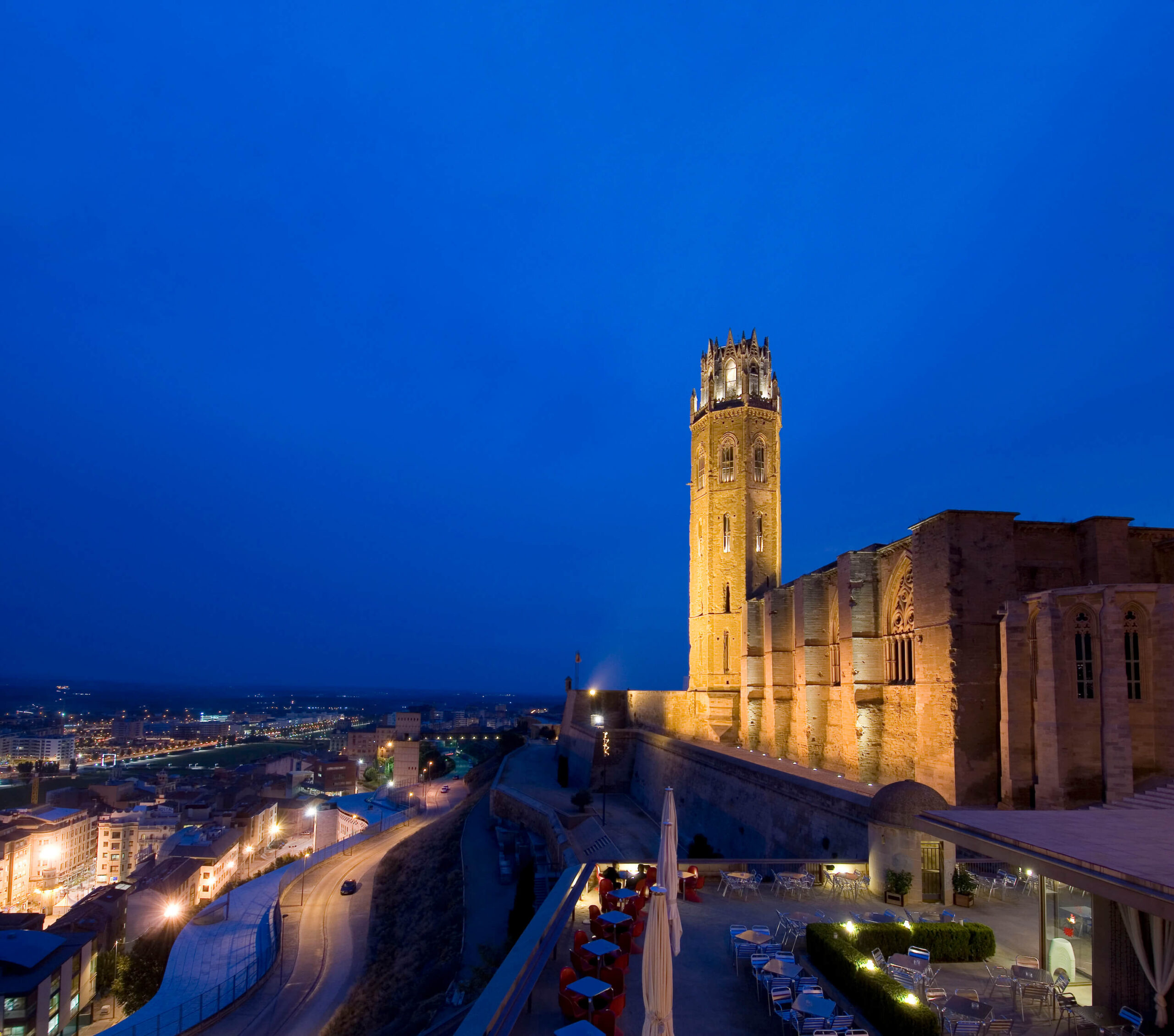
Transforming together
ABOUT US
Through a shared agenda, systemic changes are being implemented to achieve a collaboratively constructed vision of the future.
In this vision, Lleida becomes a region that, through strong networks of collaboration, capitalizes on its strategic geolocation and endogenous resources, capacities, and potentials to develop a competitive and sustainable model of a green, circular, and highly digitalized economy. This model strengthens strategic sectors and fosters the emergence of new sectors and business models in a conducive environment, equipped with the necessary infrastructure and services to generate the levels of well-being and prosperity needed to retain and attract population and talent while actively contributing to the achievement of the SDGs and the ecological and digital transition driven at the European level.
The institutional alliance, the vision of the future as a benchmark, the shared agenda as a working methodology, the governance model for managing the agenda’s dynamics and processes, and the territorial ecosystem supporting transformative innovation make Lleida an ideal environment for ideating, prototyping, and scaling systemic solutions that can be replicated in other rural areas. These rural areas, with their natural capital, are essential for achieving the changes in production and consumption models that the planet and humanity urgently need.
“LLEIDA, TERRA D’OPORTUNITATS”
A TOOLKIT TO ACT
Shared agenda to co-identify challenges and systemic solutions.
The shared agendas of RIS3CAT 2030 promote Catalonia’s transition towards a greener, digital, resilient and fair socio-economic model.
“Lleida, Land of Opportunities” is the most representative Shared agenda in Catalonia, which articulate, through a participatory and flexible governance model, the collective action of diverse actors to face shared challenge of depopulation and the problems and opportunities that arise from them.
Highlighted characteristics:
- It starts in 2018 from the identification of depopulation as a complex problem which need a holistic and dynamic perspective.
- It focuses action on change, transformation and collective impact, based on endogenous resources.
- It promotes the design and experimentation of possible solutions and alternatives, to address the challenge.
- It involve, from the beginning, the groups affected by the problems it address, although it go further, with the aim of reproducing successful solutions or implement them on a larger scale and connect them with more global strategies and agendas, such as SDG or the EU Green Deal.
Participatory, resilient and flexible governance model.
A holistic and dynamic perspective cannot be subject to rigid governance structures such as those used to address simple problems.
Shared Agendas require the definition and implementation of a governance model accepted by all actors involved, in order to translate the vision and the potential transformative actions into actual initiatives. By default, this governance system is dynamic, flexible, participatory, and has the mechanisms in place so that all actors can have a say at all times.
This is the case of the governance model of “Lleida, Land of Opportunities”, which despite having a very institutional composition, has mechanisms to overcome electoral cycles, because the challenge is greater than these dynamics.
Suitable environment for change sustained over time.
“Lleida, Land of Opportunities” is not a specific initiative linked to a time-limited project. It is the firm will to drive real changes to achieve the shared vision of the future. This requires having a solid work structure, not based on funding calls, but on expectations. Funding Calls are a tool, not the purpose.
The challenges do not have obvious solutions; they require coordinated interventions by multiple actors, with a systemic view that combines short-term actions with medium- and long-term actions aimed at a shared vision of the future.
In this sense, there is a territorial ecosystem of transformative innovation to promote the dynamics of the agenda and facilitate the identification, design, prototyping and scalyng of transformative actions, designed to actively responding to unexpected effects and developments, successes and failures.
Resources for measuring, evaluating and learning.
The starting point to define tools for measuring an evaluating the real transformative impact of the actuations of the shared agenda, including Transformative Innovation Projects, is that we aim to change our current system, based on fossil resources and lineal processes for a circular model based on renewable and biological resources.
The experimental and inclusive nature of the shared agenda requires that the evaluation have a formative and continuous nature, given that the co-identified interventions aims to boost alternative practices to the current system that, once scaled up, generate real changes in the system. It is a different model from the traditional evaluation, which is carried out at the end of the intervention and retrospectively to issue an assessment of the results of the intervention.
Therefore, the assessment approach have specific characteristics that requires the development of new evaluation capacities:
- happens in real time.
- Aims to improve the definition and implementation of an intervention, supporting the development of strategies and organizational capacities.
- It happens in real time and requires processes integrated into the routines of the participants in the fields of innovation (co-identification phase).
- It develops throughout the entire subsequent process, from the process of defining the intervention, through its implementation.
- Promotes second-order learning, (questions beliefs, visions, perspectives).